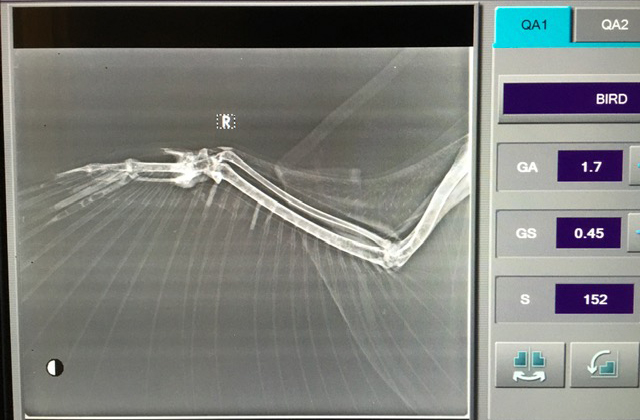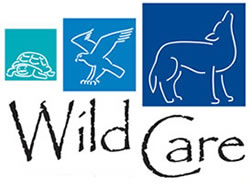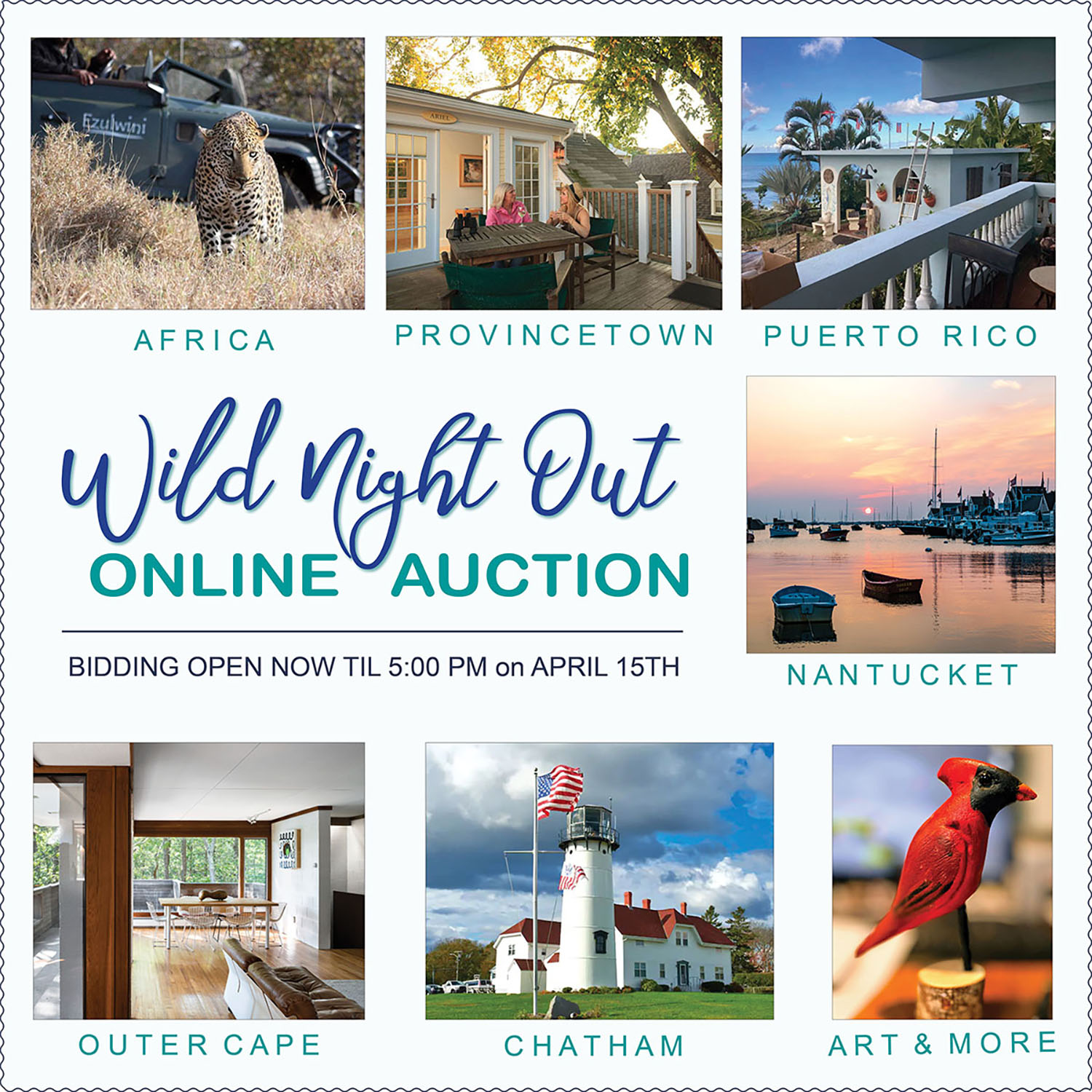
Turkey Vulture #1149- Gross but Awesome!
Turkey Vultures are commonly seen on Cape Cod from spring through fall. They are enormous dark raptors you’ll see flying high on the thermals, barley ever flapping their wings. If they are low enough and you look closely, you can see their bright pink, bald heads. Their heads are featherless because they are scavengers and they eat mostly carrion. dead animals which range from frogs, to deer, to floating seals. A feathered head would get very messy during a meal, if you dare to think about it. They are very interesting birds. In the hot summer they defecate on their legs to keep cool (evaporative cooling).
In mid-July Wild Care received a Turkey Vulture who was found along a road in Sandwich. Another poor, dehydrated, starving animal. The metacarpals (hand bones) of his right wing were broken (see x-ray). He was unable to fly and find food. The bird’s bloodwork told us that he also had a detectable, but not necessarily treatable, level of lead poisoning. Leah, a Wild Care Staff Wildlife Rehabilitator and I splinted the wing and gave him fluids. We decided not to treat the lead poisoning at this point, hoping it would subside on its own, which it did. The bird improved every day and was eating food within its first week.
Turkey Vultures prefer one day old carrion (at least) which was easily provided by offering the ‘old’ food from healthy concurrent patients like the Eagles and Osprey who were getting fresh-caught fish.
As the vulture’s health improved, he began hissing at us and was quite unpleasant to deal with. Turkey Vultures do not have a syrinx (voice box) so they slurp and growl and hiss. This, along with the vile smell of its food and the potential vomiting at any second, kind of made him a challenging patient. Even our up-beat assistant Lianna Montgomery commented after her first experience with him…’’He’s kinda gross isn’t he?’’ But, admittedly, though his crate was always an experience, we all did enjoy finding the remains of the first whole fish he was offered. A perfectly gleaned skeleton! How awesome is that?
Graduating to the big aviary was hard for the bird. He was afraid of us and was very stressed and not eating well there. The point of the large aviary was for him to exercise and camera showed he was not doing much of it. We had to exercise him if his wing was to heal. Unfortunately that meant chasing him on a routine basis. Vomiting is one of their defenses, and chasing him provoked it. Ugh! But we did discover the regurgitations were always re-ingested later. Another Ugh!
After a long eight-weeks at Wild Care’s “Carcass Restaurant and Rehab”, the vulture was released on the Cape Cod National Seashore at Fort Hill in Eastham. A couple from Canada watched as I opened the crate. The bird hopped a few times and just flew away. No gurgles, no hisses, no smells, and no looking back.


Wild Night Out Auction – CLOSED
READY, SET, BID… We are so excited to announce that our Wild Night Out Online Auction is now live!
READ ALL NEWS
CALENDAR OF EVENTS
05 April, 2024
Wild Night Out
EVENT DETAILS
28 February, 2024
Wildlife Winter/Spring Talk Series
EVENT DETAILS
14 February, 2024
Save Wildlife – Get a Personalized E-Valentine, and be Entered to Win a Date With a Turtle
EVENT DETAILS

DID YOU KNOW??
Wild Care has a state-of-the-art seabird therapy pool, which allows seabirds and waterfowl to exercise on running water. This will help our bird friends recover more quickly so they can get back to their watery habitats!

